There are many rooms in Jon Fadem's musical mansion. He has shared stages with funk legends George Clinton, Bernie Worrell, and Larry Graham, co-founded Talking Heads tribute band Start Making Sense, and his Grateful Dead tribute project allows more personal expression, one where he can bring Miles Davis quotes and Coltrane references into extended improvisations.
A cassette of Joni Mitchell's Blue played Fadem to sleep as a child, Jeff Beck opened his eyes to the guitar's possibilities, and Miles Davis taught him that artistic identity can persist through constant change. After giving it an honest go at medical school, a radio broadcast of Jimi Hendrix's "Hear My Train A-Comin'" redirected his life back to music permanently. In our talk, I came to see how these influences, and others, represent the building blocks of a musical education that began with trips to the local library to check out records and continues to this day.
On his album Thankful, Jon Fadem made a deliberate choice to strip away vocals from songs of his that he had been singing for years, trusting his guitar to convey what lyrics once expressed. The decision came naturally to someone who describes himself as "more of a guitarist than a singer," yet it required learning to play melodies that once carried words. Most takes were captured in just one or two attempts, preserving the organic quality of musical ideas flowing directly from mind to fingers.
Lawrence Peryer: You wrote lyrics for some songs but decided against using them. What led you to trust that the melodies alone would convey what you wanted?
Jon Fadem: I've always sung as well as played guitar, but being completely honest, my singing voice is nowhere near as good as my guitar playing. I've had some iterations of my band where I actually had other singers who would sing the songs for me—songs that I wrote. That always sounded better than me trying to sing them.
In the process of writing the songs, I wrote lyrics to go with the melodies. But when it came time to do this record, I decided to let the guitar speak for me. It was an interesting process because I had to actually learn how to play the melodies of the songs that I had been singing for years. I took most of the takes, actually, of the melodies on the songs that were previously vocal songs. They were almost like first or second takes, where I just figured out the basic notes and then went with it so that it had more of an organic feel.
Lawrence: Did you go so far as to record demo versions or scratch vocal versions?
Jon: I had done previous versions of them. Like "Postcard"—there was a complete studio version that I recorded with my band Post Junction for many years. There was a whole completed version with a band playing and me singing it. I actually went back to that recording to reference what the bass player was doing so that I could play my own bass part.
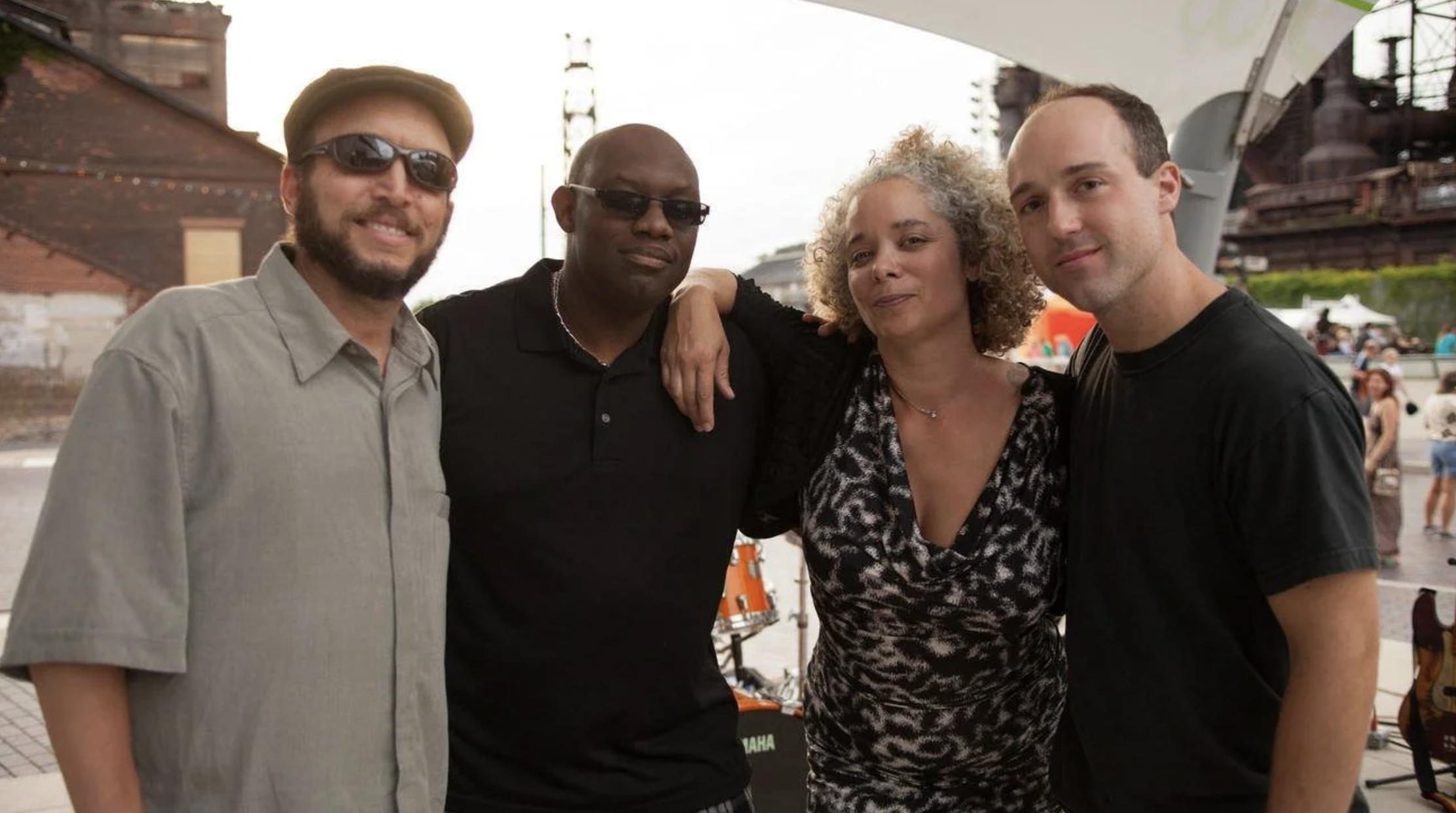
Lawrence: You've been upfront about your influences—Jeff Beck, Stevie Wonder, Joni Mitchell. It's quite a trinity. What do they represent to you as a collection?
Jon: Each of those artists reflects different times in my life where I was really immersed in their music, and they had a huge influence on me personally. I was about eight or nine years old when I started getting really into Joni Mitchell to the point where I remember going to the local library to check out her albums. I was nine, looking up to the counter and being like, "Where are the Joni Mitchell records?" I took out Blue, Court and Spark, and For the Roses, then I taped them on cassettes. The Blue cassette was the one I listened to every night before bed for probably about two years. I knew the album really well, except for the last song, because I was always asleep by that point. Years later, I heard "The Last Time I Saw Richard" and was like, "This song's so great. I'd never even heard it before."
My brother turned me onto Jeff Beck and opened my eyes to all the things that you can do with a guitar. Jeff Beck and Jerry Garcia were both influential to me as a player. Jerry Garcia was the reason I wanted to play guitar. I was twelve, went and saw the Dead with my older brother, and I was like, "I want to do that." I started playing guitar right away after that.
Later in high school, I started getting into Miles Davis. I went to Oberlin, which was a music school as well as a college. They had an immense music library there. I remember going and listening to Miles Davis records over and over, going through all of them and learning about his history and how he changed throughout his career. But he always kept his unique, singular voice, even though the context in which he played was always changing.
Joni was very similar in that she evolved throughout her career. Started out doing basically folk, then started using jazz idioms in the seventies. That apex with The Hissing of Summer Lawns, where she had Jaco Pastorius, Michael Brecker, and Pat Metheny—an incredible band. Then, in the eighties, it was more rock and her own individual style.
All of those artists evolved, and that's always been really inspirational to me. Stevie Wonder—those records never get old. You listen to Talking Book now, it could have been made last week. Getting into those core albums that Stevie made—Fulfillingness' First Finale and Talking Book, Innervisions, Songs in the Key of Life—those records are superhuman, the way he hears things and the music that he creates. It's so universal and evokes such emotional responses. It could be the saddest song—"They Won't Go When I Go"—or "Visions." Then you play something like "Sir Duke" and everybody's up dancing. It's the whole range of emotions.
Lawrence: I can remember as a child hearing "Sir Duke" on the radio, and whenever it came on, it stood out from everything else. That horn line and the joy, the swing of it.
Jon: We had the 45. I remember very clearly because the B-side was "He's Misstra Know-It-All," which is a weird choice for a B-side because it's kind of an obscure song in his catalog.
Lawrence: You talk about Miles—is there an era or record that resonates most for you?
Jon: Kind of Blue to me is just my favorite album of all time, of any genre of music, of any era. I've heard it thousands of times, and I still hear something new every time. It brings me to a certain place, mentally, emotionally, and physically. I know every note on that album. I could sing you every solo from every song, from every player.
After that, my favorite period is the mid-sixties quintet—the group with Wayne Shorter, Herbie Hancock, Ron Carter, and Tony Williams. Those albums that group made are just at such a high level. The communication between the band members was so good. The compositions were so incredible. That's my favorite band of all time, even though Kind of Blue is definitely my favorite album.
I've had great conversations with all the members of that band except for Miles about that group. I met Herbie Hancock a few times and was able to ask him, "Why didn't you guys play some of the other original tunes that were on the albums live?" He basically said that they didn't really have any rehearsals, so they didn't really have the chance to work out those tunes. Miles was picking all the songs.
Ron Carter, I've hung out with him a couple of times and had him sign my copy of Miles Smiles. He's nothing but gracious. The fact that you can see him at the Blue Note in New York City—all you have to do is show up three hours earlier and wait, and you can sit at his feet. I could reach my arm out in front of me and touch his shoe. And he's such a kind man. He waits after and talks to his fans.
Lawrence: You mentioned earlier that you saw the Dead, the lightning bolt hit you, and you picked up the guitar. How did your musical education change as you moved from self-taught to formal studies?
Jon: That was definitely a process. I took some lessons in high school from a great guy named Tom Cohen. I had been playing for maybe about a year and a half, and there were specific technical things that I was not doing. I was using all downstrokes instead of using down and upstrokes. I remember what it felt like to all of a sudden have to change. It felt like I couldn't play. It was very frustrating.
Same thing when I started learning theory in college with a jazz guitar teacher named Bobby Razza. I started learning about music theory, chord construction, and harmony more than I ever knew. It was tough at first to apply it, but then you incorporate it and use examples.
Teaching has actually helped me understand things better, too. For example, there's a Jerry Garcia guitar solo from the Cornell 1977 show that is widely acknowledged as one of the best Dead shows ever. Through the process of teaching, I took this particular solo and transcribed the whole thing note-for-note, analyzing how every note he played was related to the chord he played over at that exact moment. Jerry was very well trained in theory. He was into Art Tatum, Miles Davis, and Coltrane's music. Going through that process taught me personally a lot about how to play over changes.
Lawrence: Do you have an era of Jerry's or of the Dead's that you revisit more than others?
Jon: The mid-seventies is my favorite stuff of the Dead. I love the 1969 stuff because the Live/Dead album—that was literally the album that I learned how to play guitar from. Side one of Live/Dead is like a twenty-minute song called "Dark Star," which is basically D major the whole time. I would put that record on and sit there with my guitar, listening to what notes worked and what didn't. That was how I initially learned how to play lead guitar. I still use those shapes on the fretboard that I learned then. That period of the Dead I love because "Dark Star" on Live/Dead literally is the DNA of my playing.
I also love Blues for Allah, an amazing record where they were shedding. They took some time off and just practiced. Technically, it's some of the most fantastic stuff that they ever did.
Terrapin Station is probably another one I would add. I remember hearing the album, the song "Terrapin Station," and just being completely blown away by the musicality of it.
Lawrence: It's interesting the world that you can go down when loving a band. I think the Grateful Dead are good for that for a lot of suburban kids. That band opened people's brains up and poured in a lot of interesting mid-century American music, art, and culture.
Jon: I completely agree. They would be very proud of that. I think that was part of their mission, to just open people's minds in general.
Lawrence: You described wanting people to either listen carefully to Thankful or let it become "part of the fabric of their life." How do you achieve both background accessibility and deep listening rewards?
Jon: I think the melody has to be there. For it to have any kind of in-depth listening experience or background, there has to be a strong melody. What you do with that melody determines those different things. I was very careful when I was recording this album, not to overplay, not to try to throw in a million notes, not to play as fast as I can. I can play a lot faster than the stuff that I did on the record, but too much of that demands your attention, or it's going to get in the way of your thought process.
I was very careful to keep the playing as pure as I could. Many of the guitar solos on the record are either first or second takes. I didn't do a lot of manipulation with Pro Tools. I wanted to play with it from the heart, pouring as much feeling into it as I could. Not be too intellectual or heavy with lots of notes, but you could still listen to it and be moved by it.
It’s not real demanding on your ears with a thousand chords and a thousand notes and heavy riffs. But if you listen to it, there are a lot of details: little parts that come in or little background things. There's a song called "Postcard," and by the end, there are actually eleven different guitar tracks playing at the same time. There are all these counter-melodies, and there's a mandolin I put on there and a keyboard. So, if you listen carefully, you’ll be rewarded with little things you might not have otherwise noticed.
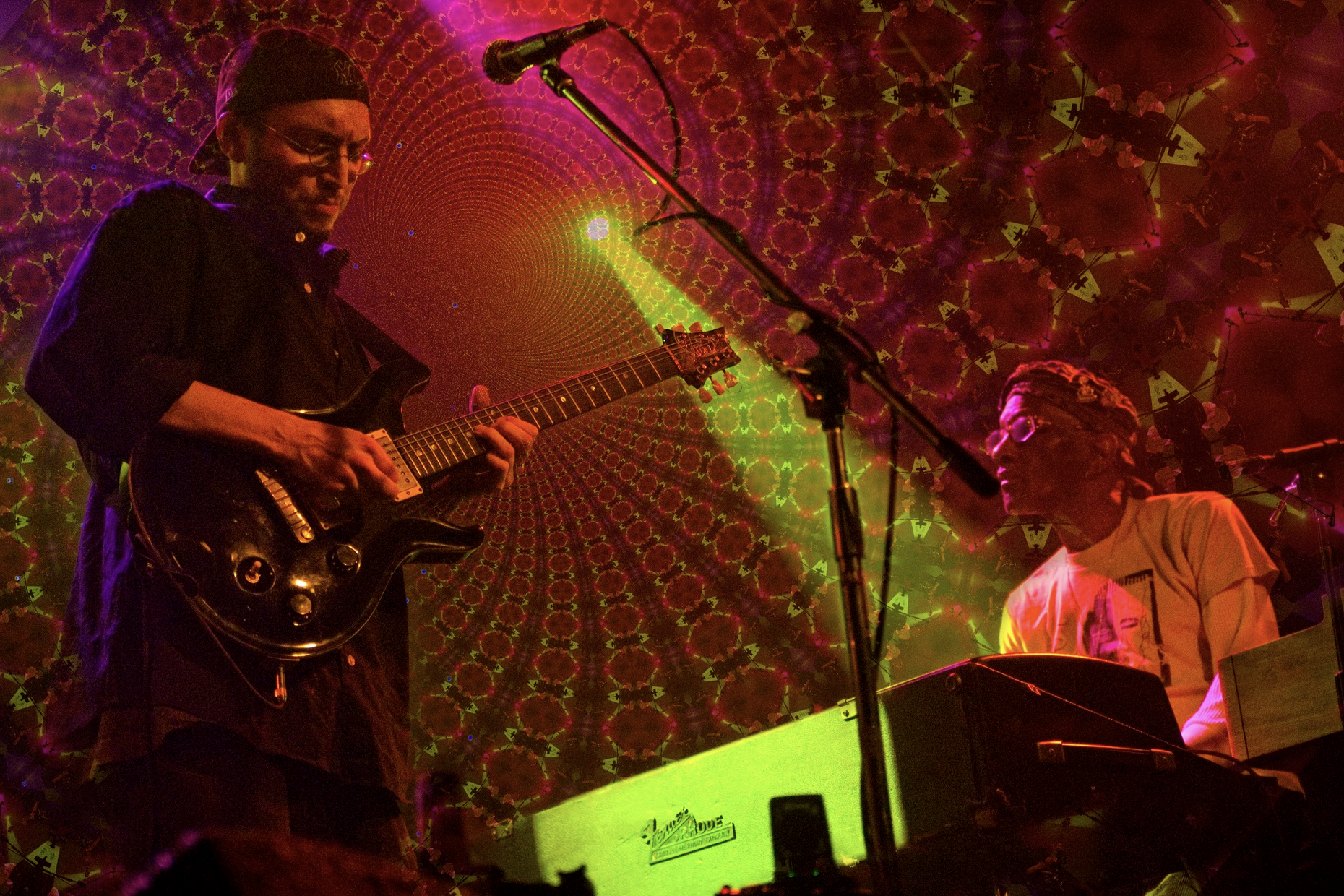
Lawrence: You've worked with George Clinton, Bernie Worrell, and Larry Graham. That's a masterclass in groove and pocket. What did you get out of those experiences?
Jon: So much. After college, I majored in neuroscience and went to medical school straight from college. I finished my first year, but during that time, I discovered the Jimi Hendrix Band of Gypsys record and Funkadelic. The combination of funk, rock, and soul, all together, had a huge impact on me.
This is a true story. I hated medical school while I was there. I passed everything, but I hated it. One day, I was driving home from an anatomy exam, and I put on WBGO, which is a jazz station out of Newark. I started hearing this guitar solo. I'm listening to it and it's Jimi Hendrix and it's the Band of Gypsys. I had never heard it before, but I knew exactly what it was. I got to my house—it's still playing. I just sit in my car, parked, listening to the whole thing. The track's ten minutes long.
I call the radio station. The DJ tells me it was a bonus track for the Band of Gypsys import CD, a song called "Hear My Train A-Comin'." That was the moment. I was like, "I need to do that. I don't need to be doing this thing that I'm fighting myself over every day." That summer, I got a wah pedal and started a funk band in New York.
I went to see a Buddy Miles gig. I met his publicist, told her my story. She introduced me to him, and we became friends. Eventually, we did a bunch of shows together. It was incredible—playing with the guy from the Band of Gypsys, the band that made me leave medical school.
George Clinton, a similar kind of thing. A friend of mine runs a café in Bethlehem. She calls me up at two in the morning after he gives the concert: "Get the band over here right now. George Clinton is coming to the café." We played like twenty P-Funk songs because I knew so many. We wrote a song together, too, he and I.
Bernie Worrell was also a genius. Such an incredibly kind, wonderful man. He was a dear friend. My son was born nine years ago, and at this point, Bernie was very sick. He couldn't speak. I texted him a picture of my son, whose name is Miles, after Miles Davis. He texted me back in two minutes: "Beautiful. Congratulations. So happy for you." He passed two weeks later. That's what an incredible man he was—such a kind soul and a genius on the highest level. Having these people in my life inspired me to keep going and showed me that you can do whatever you imagine, that you can make things happen.
Lawrence: Tell me a little bit about inhabiting the music of the Talking Heads. To be that inside someone else's work, understanding the mechanics of it, seeing how it was constructed—that must give you insight into the craftsmanship part of the art. How do you avoid losing your identity?
Jon: That's a great question. It's been a lot of years and a lot of gigs. I've played "Psycho Killer" over a thousand times because we played that every single show.
The formation of the band came out of commuting with the lead singer to the School of Rock, where we were both teachers. We would listen to music on the way. The owner of a local bar said, "Why don't you do a whole night of just Talking Heads?" So we started listening to all of Talking Heads’ music and deciding which songs we wanted to do.
I basically had to figure out every song we were going to do and create charts for everyone else. Some of the songs are not that complicated, but there are a lot of parts that make them really integral to the compositions. Certain riffs, bass parts, or guitar lines define it and give the song its character.
Dissecting these songs involved a lot of learning about how different parts of the song can interact. Especially like the Remain in Lightsongs, the stuff with Adrian Belew—there were a lot of layers. To get all of those things happening, it took a lot of coordination between the players.
But it was always very separate from my original music. There was never a point where I felt like there was some kind of conflict. It's a wonderful gig. It's really fun because everybody in the audience is dancing and singing along to "Wild Wild Life" or "Burning Down the House." The Talking Heads thing is such a visceral experience. Playing your own original music is personal and satisfies a different part of your musical self.
Lawrence: I think something that intrigues me about tribute bands is that a lot of this music would die otherwise. Kids aren't going to find this music unless it somehow enters their algorithm. I think there's real beauty in treating popular rock music like a living songbook.
Jon: I think that's a great way to look at it. I don't mind the word tribute at all. With the Heads band, it's amazing how young the audience is. Sure, there are old heads who say, "I saw them in '78," but then there's a bunch of young kids.
The Grateful Dead band that I have now has been around for about six years. I love it so much. We don't try to sound like the Dead. We don't have a keyboard player, and I like it like that because it leaves a lot of room for me to do whatever I want. We do very long improv sections. I'll throw in Miles Davis licks all the time. I'll throw in quotes from John Coltrane. I'll throw in whatever I want.
We do all the songs that I want, but we do the stuff that I like. So we do "Help on the Way"/"Slipknot!" We do all of Terrapin Station, the whole thing. The playing comes very naturally to me. But I don't try to sound like Jerry, tone-wise. I just use a sound that I like.
We've started doing my song "Postcard" in the Dead show. I actually wrote the song right after Jerry died, and the lyrics were about roses dying, so it's relevant. The feel is like "Fire on the Mountain" a little, but different. The crowd really loves it.
Lawrence: Tell me about your relationship with John Kimock. A lot of this record reminds me of your inspirations with Stevie Wonder in that you're playing everything, or just about everything. But not drums.
Jon: Johnny is one of the reasons why I am doing music right now. The long story made short is that after leaving school and doing music, I started getting older. I hit thirty and said, "I want to have a family eventually. I need to go to graduate school and get a degree." So I decided to get a PhD in neuroscience from Lehigh University, which is in Bethlehem.
All was good for the first couple of years at grad school. One of my teachers said, "There's an open mic at this place called the Wildflower Café in Bethlehem. You should go." I wasn't playing at all at this point. I went to the Wildflower Café and I met Johnny and my friend Peter, who played bass.
I started getting the feel for doing music again. I formed a band with John Kimock on drums and Peter Fritz on bass called Post Junction. Johnny was about fifteen at the time, but an amazing player. We'd play places where he wouldn't be allowed in because they were bars, but because he was working, it was okay.
He reminded me a lot of Tony Williams at that age. There was one time we were playing, just the two of us rehearsing, and he threw in this Tony Williams lick from "Nefertiti." After, I was like, "Johnny, do you know 'Nefertiti'?" He was like, "No, what is that?" He just had it in him, or his dad had played it for him so many times. He was just like a prodigy.
We played together for many years and stayed in touch. When I was doing this album, I wanted to play all the instruments myself because I knew exactly how I wanted the songs to sound. But I cannot play drums at all. I said, "Who's the drummer I want for this?" Johnny had been playing tons of my original songs, so I knew how he played my songs, and I loved it.
I recorded everything in advance. Then I gave him the album. We went into a studio and did all the drum tracks in one day. It was a long day, but he did all of the drum tracks and the percussion. He killed it. I'd suggest some ideas, and he executed them perfectly. Then there were some where he would come up with stuff that I would've never come up with because I'm not a drummer, but they sounded perfect.
For example, "Lady Flies Tonight" was a song that we had played together for years. He's played the song hundreds of times before with Post Junction. I loved what he played with it, so on the first take, it was done. I love the way that he plays.
Check out more like this:
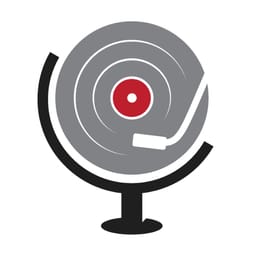 The TonearmSam Bradley
The TonearmSam Bradley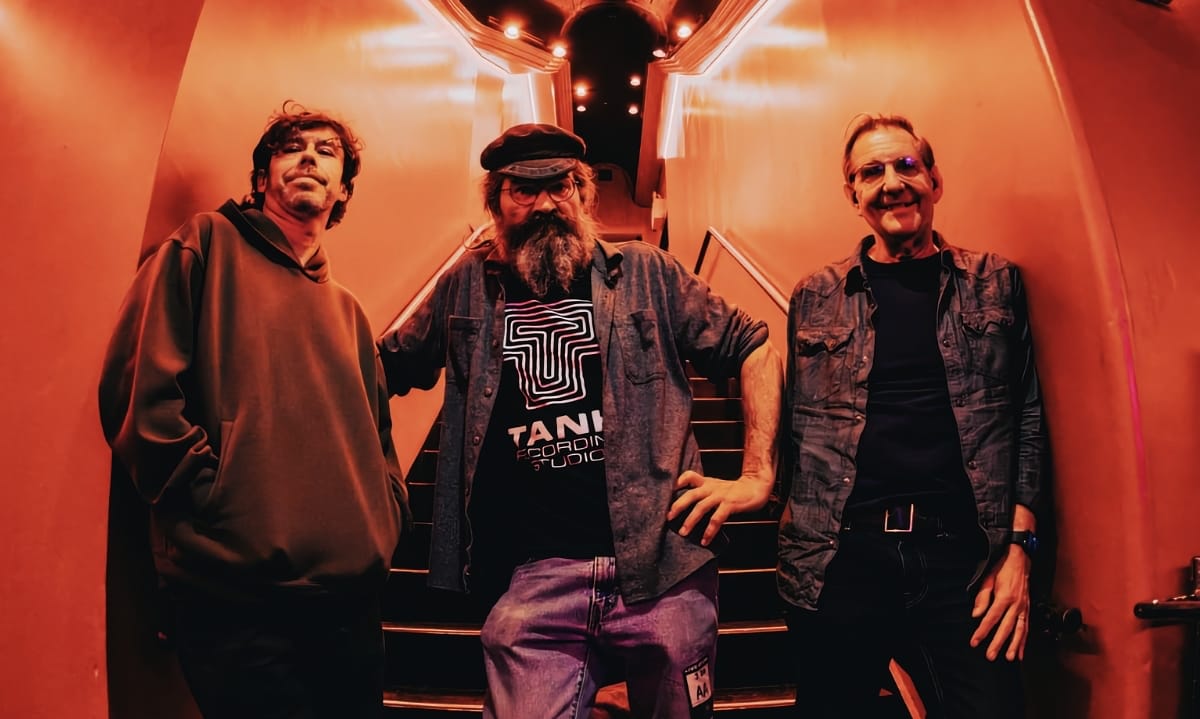
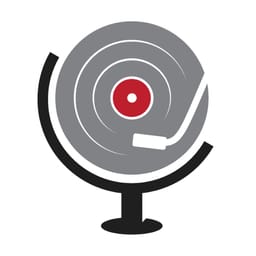 The TonearmLawrence Peryer
The TonearmLawrence Peryer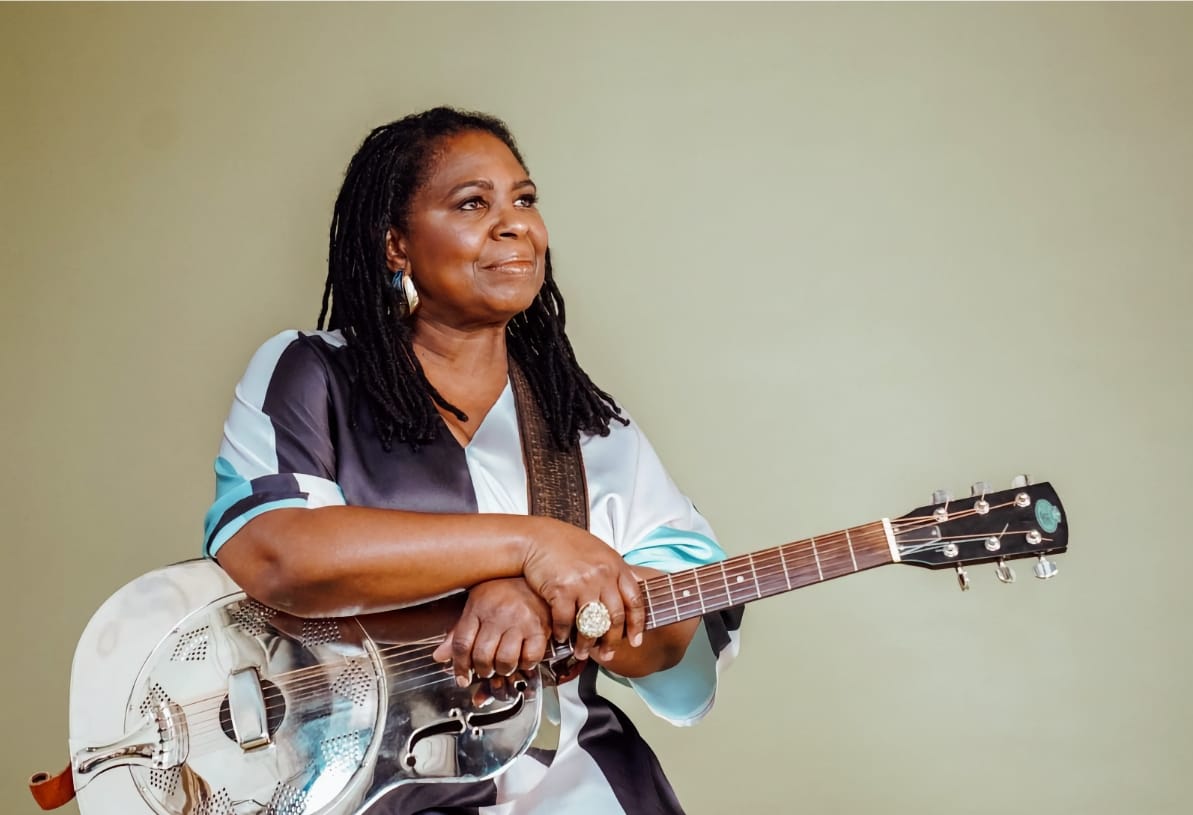


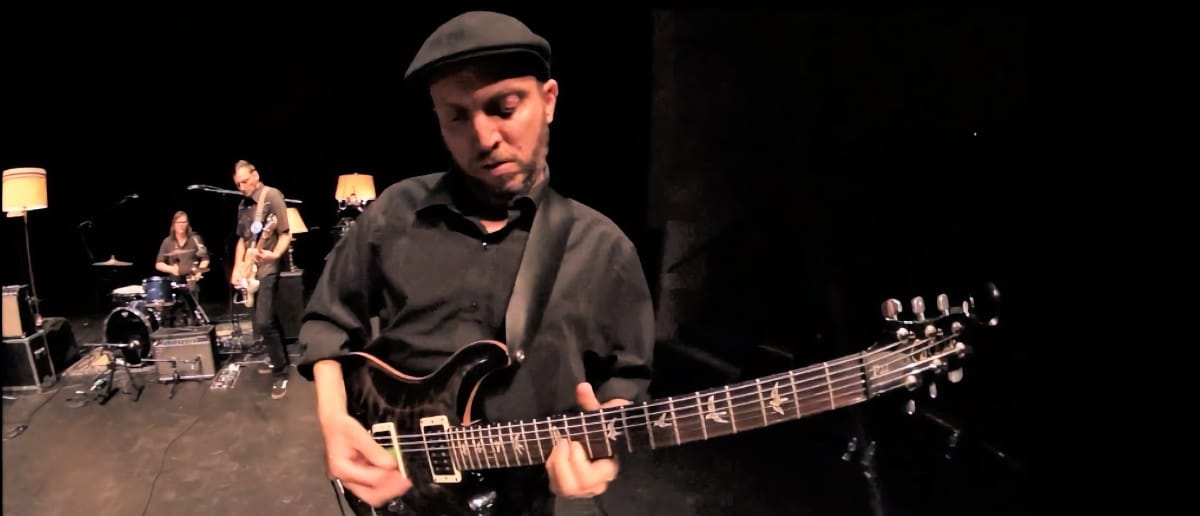

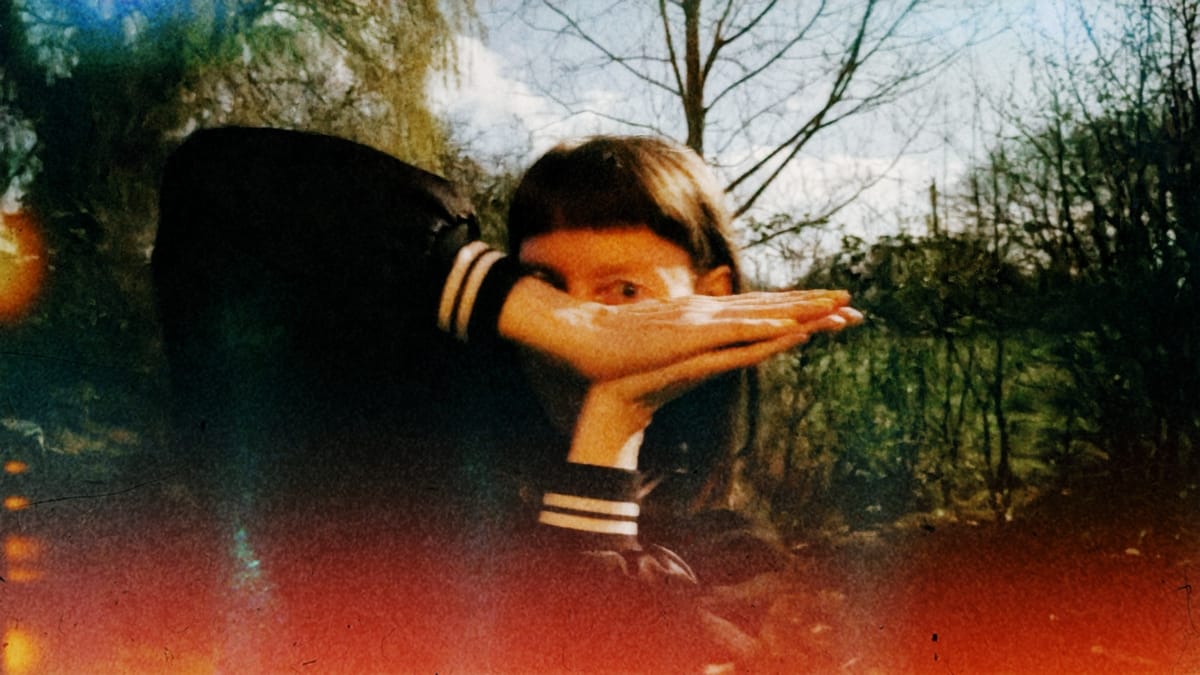
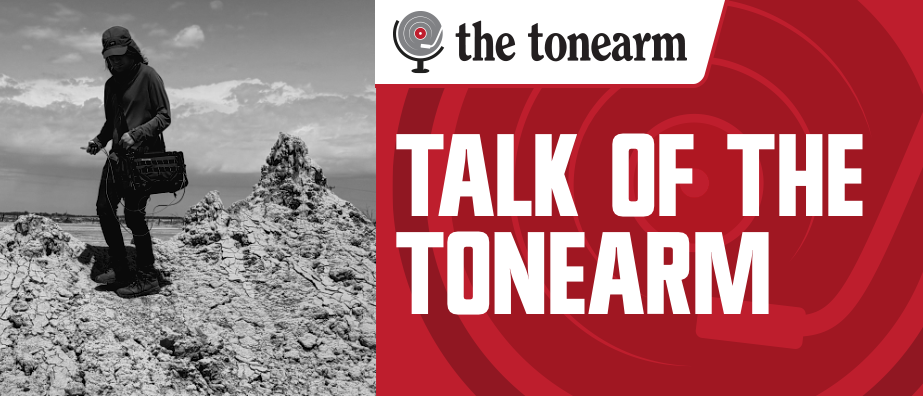
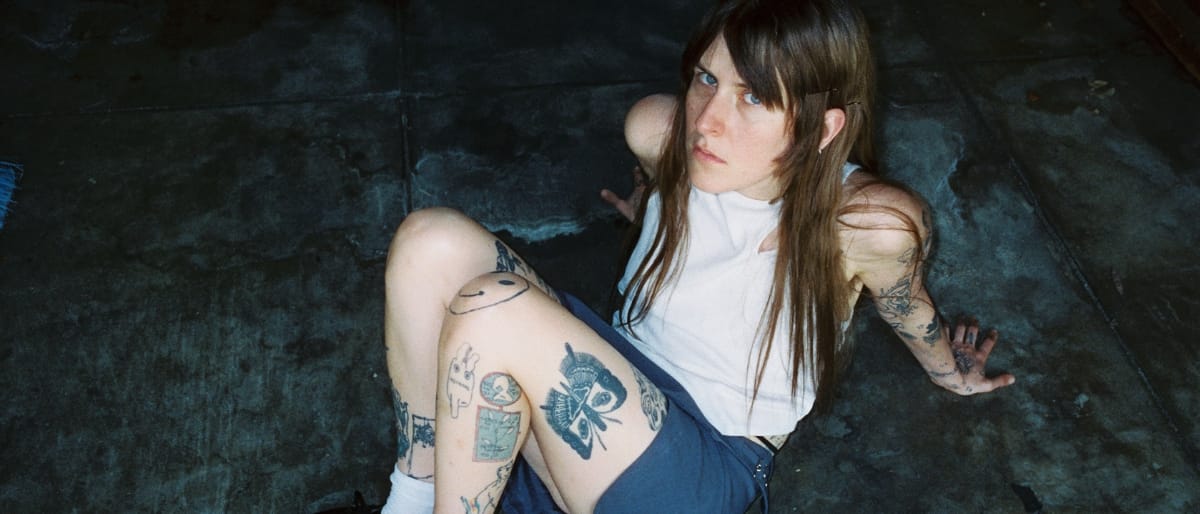
Comments